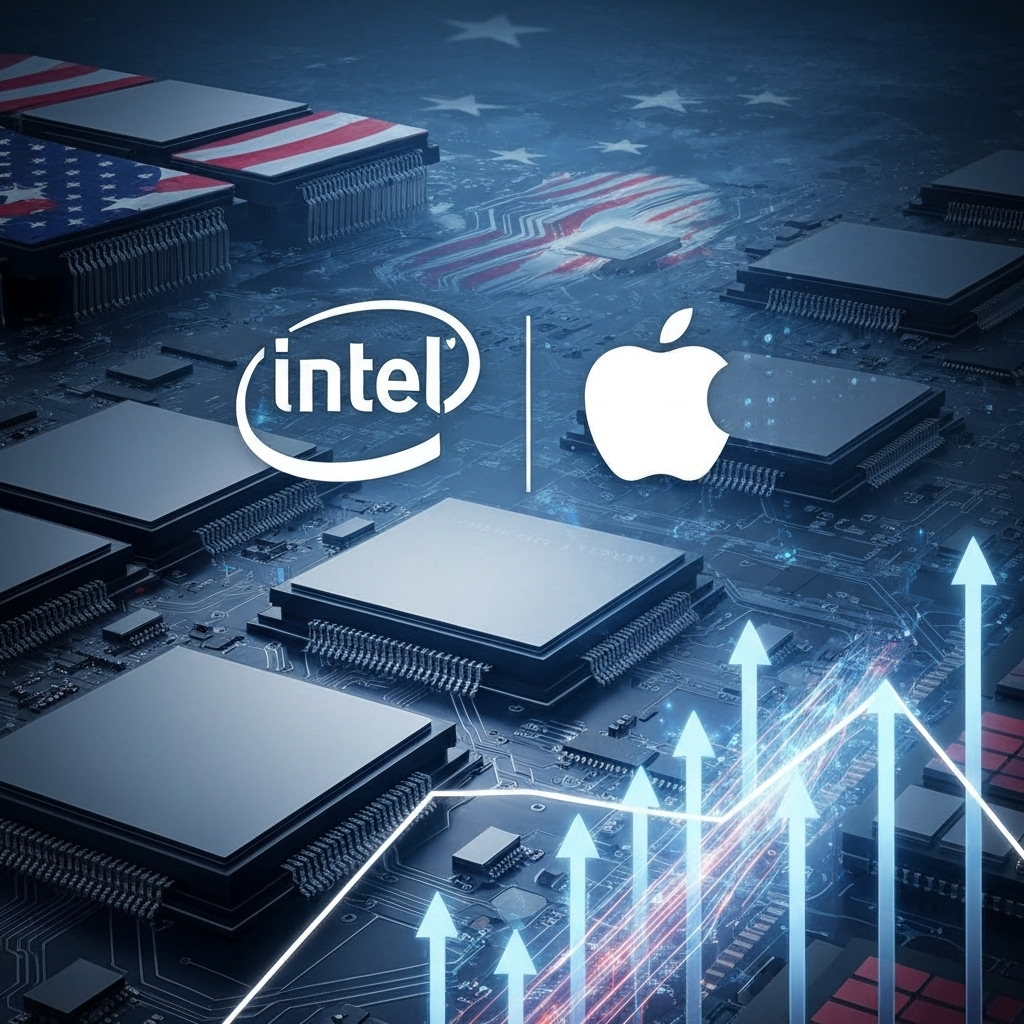Intel is reportedly in early-stage discussions with Apple over a potential investment or partnership, a development that could significantly reshape dynamics in the global semiconductor industry. The talks come as Intel seeks new allies to regain its footing in chipmaking, while Apple weighs options to diversify its supply chain beyond its reliance on TSMC.
Intel’s Struggles and Strategic Push
Intel has faced mounting challenges in recent years, including manufacturing delays, intensifying competition from Nvidia and AMD, and the rapid rise of AI-driven semiconductor demand. The company is positioning its foundry services at the center of its turnaround strategy, seeking to leverage U.S. and European subsidies under the CHIPS Act to attract private-sector partners.
Apple’s Supply Chain Pressures
Apple has largely phased out Intel processors from its Mac lineup, replacing them with its proprietary M-series silicon. Yet, it remains heavily dependent on TSMC for production. With geopolitical tensions in East Asia and growing concerns about semiconductor security, Apple is exploring ways to secure additional manufacturing capacity. A deal with Intel could provide a valuable secondary production channel, reducing supply chain risks.
Challenges Ahead
Industry analysts caution that any partnership would hinge on Intel’s ability to meet Apple’s strict performance and efficiency standards. Apple’s custom chips are built for cutting-edge power efficiency, thermal management, and performance—areas where Intel has lagged in recent years. As one analyst noted, “If Apple commits to Intel, it will be contingent on clear technology milestones.”
Market Reactions
While neither company has publicly commented on the talks, speculation has already rippled across Wall Street. Intel shares moved higher on the reports, while Apple’s stock remained steady. Analysts suggest that if finalized, the deal could represent a rare convergence of necessity and opportunity—Apple gaining greater control over its supply chain, and Intel securing the credibility and capital to reassert itself as a semiconductor leader.

